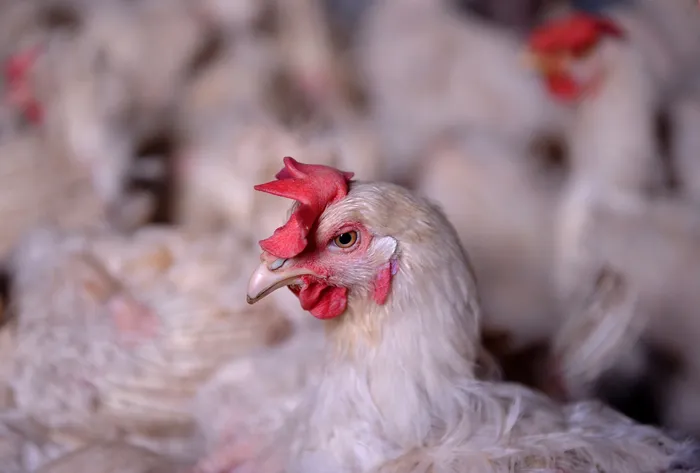The Agoa dilemma: Why poultry could be the sacrificial lamb in US-SA trade deals

When the government allows tens of thousands of tonnes of US chicken to enter South Africa at preferential rates, the threat to local producers is immediate, says the author.
Image: File
In 2015, when South Africa agreed to American demands to remove anti-dumping restrictions on United States chicken imports, the decision was sold as a narrow concession to secure broader benefits under the African Growth and Opportunity Act (Agoa). What followed was not a sterile trade technicality but a real economic trade-off: access for US chicken became, for many in the poultry sector, shorthand for jobs lost, transformation delayed, and export ambitions blunted.
Agoa was a strategic instrument for South Africa, the poultry concession allowed it to preserve duty-free access to the US for priority exports, from vehicles to citrus.
The 2015 Agoa extension expires at the end of this month, and may not be renewed. What will survive, however, is a huge annual quota of US chicken that will come in at dumped prices free of any tariff restrictions, because that is what South African trade negotiators have offered to the US.
The 2015 tariff-rate quota that allowed roughly 65 000 tonnes (now 72 000 tonnes) of US bone-in chicken into the South African market was perceived by the poultry industry as the price of that wider arrangement. The industry estimated large job losses and explained why the concession undermined domestic producers. For example, in Hammarsdale roughly 1 350 workers out of a workforce of just over 2 700 lost their jobs at just one producer. While some industry figures may be contested by importers, it is a stark indicator of the human costs at stake.
Fast forward: the policy choices that follow Agoa bargaining continue to reverberate. The government has at times suspended or delayed trade-defence measures (notably the mid-2022 pause on implementing anti-dumping duties), citing consumer-price pressures. Those pauses, coupled with quota arrangements, have been read by many poultry producers as political tradeoffs that prioritise diplomatic and macro trade interests over the master plan agreements set out between government and industry.
The damage is measured not only in volumes on a customs form. Producers who invested in processing lines, cold chains and halal certification to meet the export standards government promised now face closed doors when veterinary protocols and diplomatic “paperwork” lag. The poultry industry supplies the capital, but the government must deliver the health certificates, protocols, and trade diplomacy that turn investment into foreign revenue and sustainable jobs.
What happened in 2015 is happening again. In 2015, US congressional pressure over market access in South Africa became leverage in the Agoa renewal debate, and poultry was singled out as a sector to be sacrificed in return for wider objectives. This pattern of using a narrow sectoral concession to secure broader trade or geopolitical aims helps explain why poultry repeatedly appears as a bargaining chip rather than a defended national asset.
If South Africa is to avoid repeating the same pattern, transparency and mitigation must be non-negotiable. The government should publish any negotiation texts, impact assessments and compensatory measures before damaging concessions bind the sector. Where concessions are made for macro or diplomatic reasons, they should come with clearly budgeted transition finance for affected workers and growers, time-bound quotas, and enforceable safeguards against sudden import surges.
When the government allows tens of thousands of tonnes of US chicken to enter South Africa at preferential rates, the threat to local producers is immediate. Each imported container displaces locally grown product, undermining the investments made under the poultry master plan and eroding the margins that fund transformation and job creation.
Unlike seasonal fruit or niche commodities, poultry is a daily staple; even modest shifts in market share can cascade into farm closures, processor cutbacks and job losses in rural towns where few alternative employers exist.
If duty-free quotas of chicken imports keep expanding, whether or not Agoa survives, it is not Washington but South Africa’s own government that is choosing to put its poultry sector at risk. Each new concession chips away at jobs, transformation, and the billions invested under the poultry master plan. Poultry should not be the sacrificial lamb again, not when the stakes are rural livelihoods, food security, and the credibility of industrial policy itself.
That is what it is ultimately all about: sustaining livelihoods, deepening transformation and unlocking exports that earn foreign exchange. Left unchecked, preferential imports risk hollowing out the very base of the domestic value chain, leaving South Africa more dependent on foreign supply and less able to sustain the developmental goals government says it supports.
Negotiations for a new trade deal with the US - or any bilateral trade agreements for that matter - must be conducted in the light, with full accounting of winners and losers, and with concrete mitigation for those who, historically, have been asked to sacrifice.
If the government strikes bargains in the shadows, trade negotiators may rejoice, but the first to feel the fallout will be South African workers, small contract growers, and rural economies.

Francois Baird is founder of the FairPlay movement.
Image: Supplied
Francois Baird, Founder, The FairPlay Movement
*** The views expressed here do not necessarily represent those of Independent Media or IOL.
BUSINESS REPORT